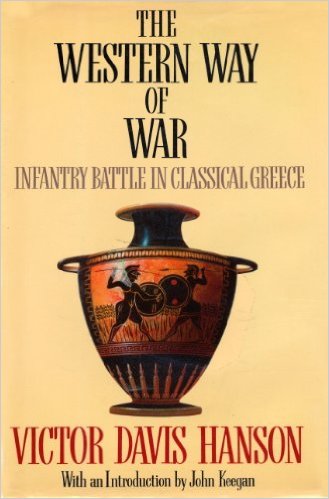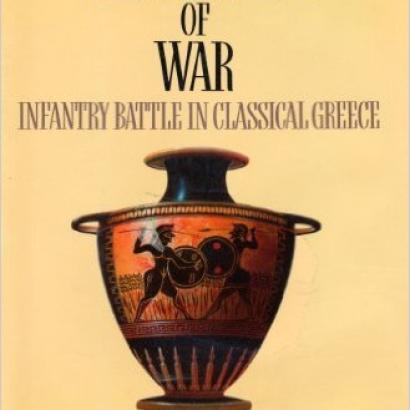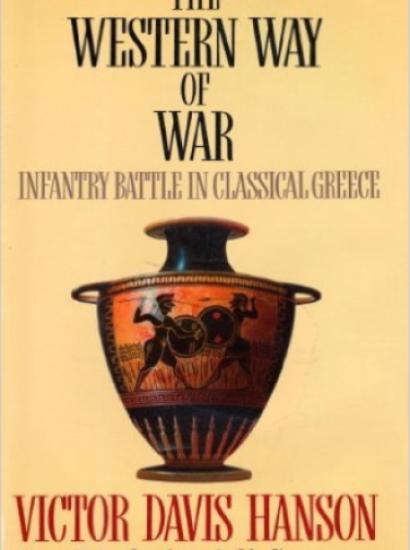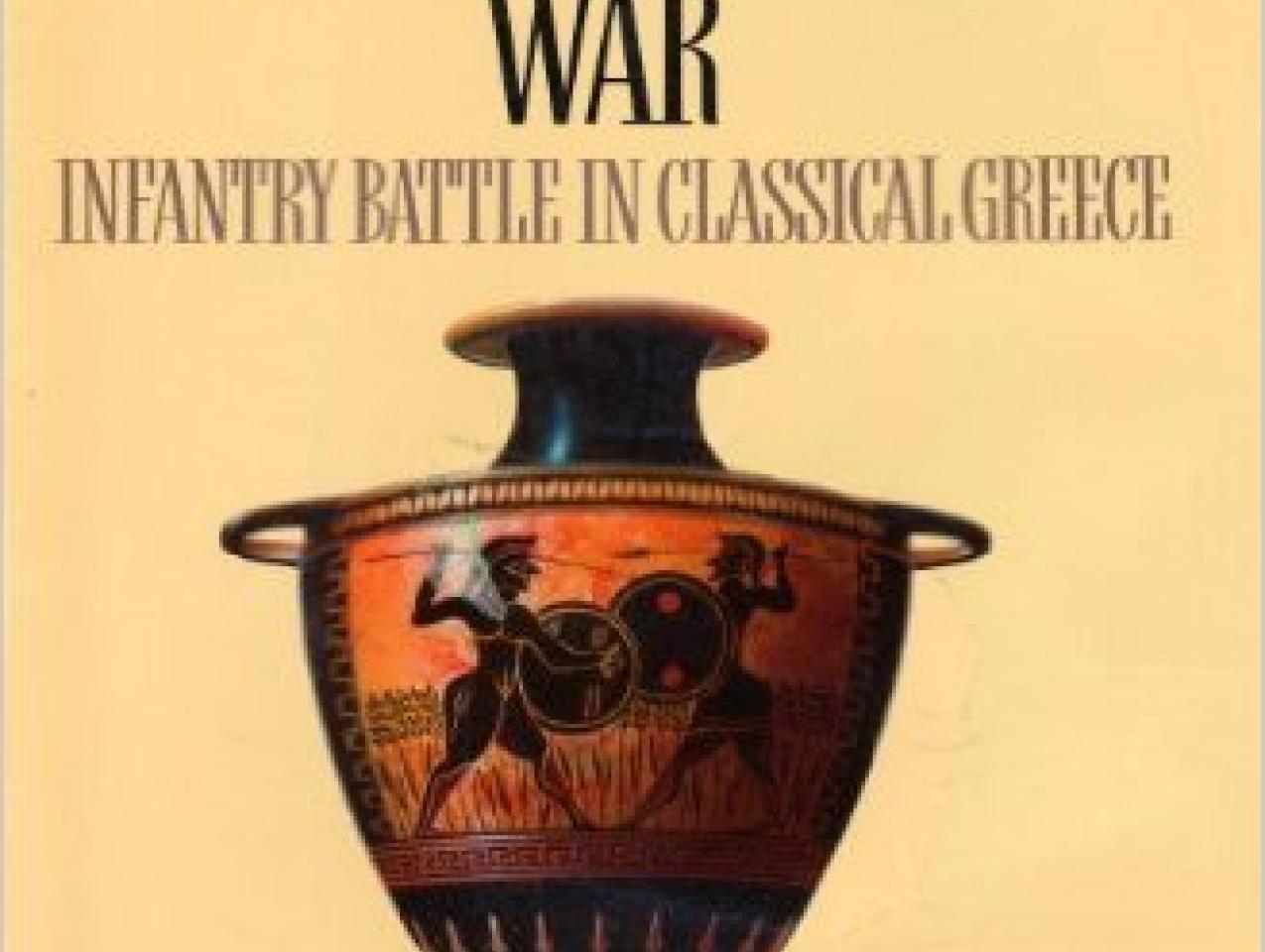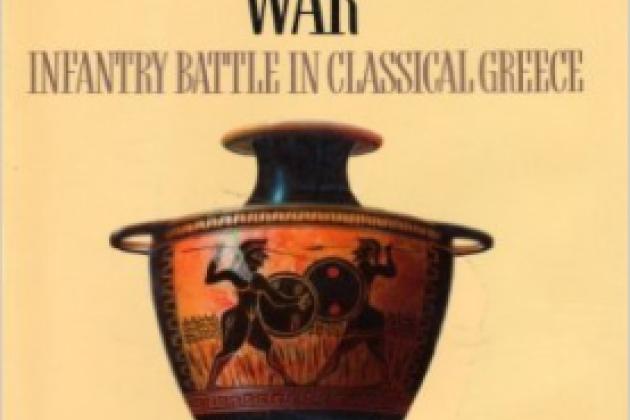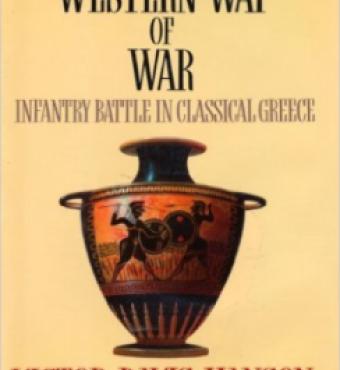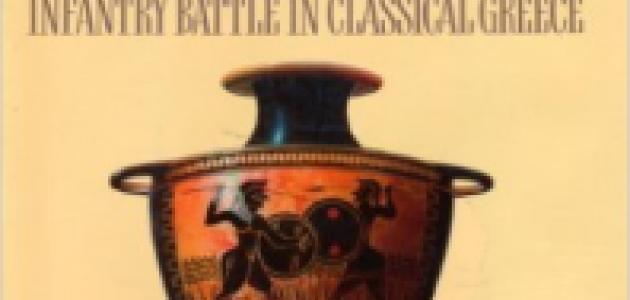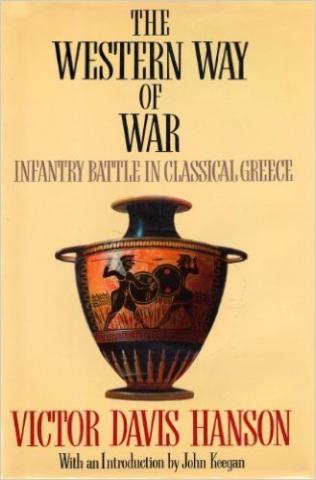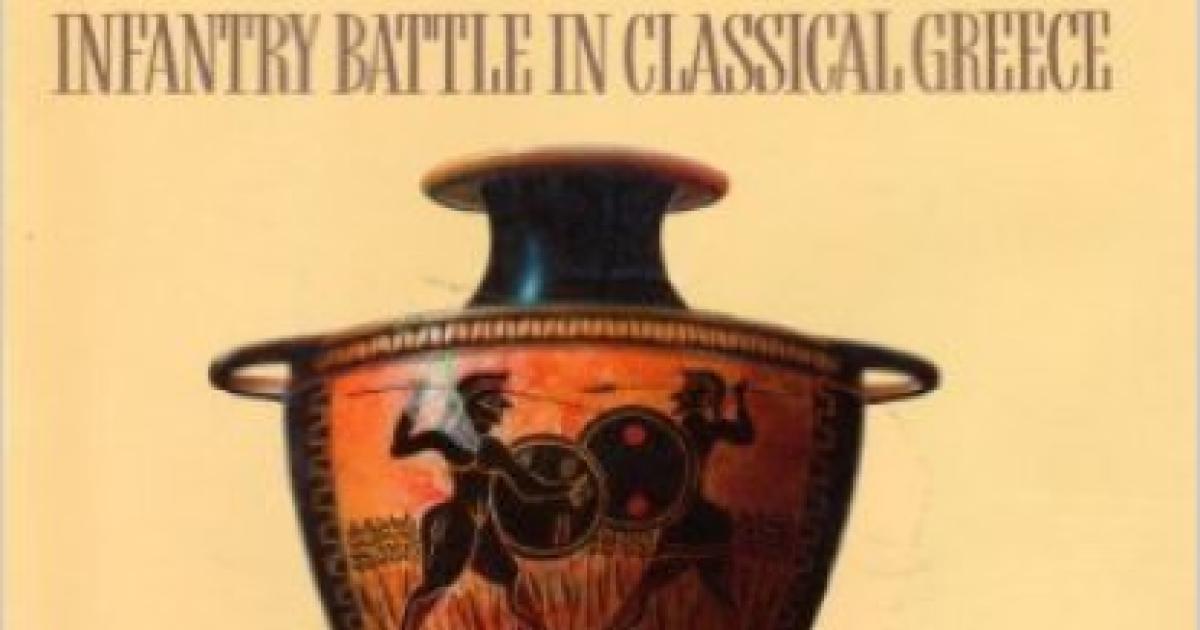- History
- Military
Professor Hanson has written a number of important and interesting historical works on ancient Greek history and the relevance of that great period in human activity to our own world. But by far and away his most important and interesting work is this study of hoplite war (from the seventh century B.C. to the end of the fifth century B.C.) among the Greek city-states. The Western Way of War stands as one of the most brilliant studies of the sharp end of combat ever written by an historian—in some ways an even finer examination of men in combat than John Keegan’s The Face of Battle.
What makes this study so unique is the paucity of sources available to the students of ancient Greece compared to those available to the modern historian. To achieve his of goal of laying out the grim realities of hoplite war as well as its social and political implications, Hanson has drawn extensively not just from the histories of the ancient Greeks, but from their poetry, their drama, and the writings of their great philosophers. The result is an extraordinarily sophisticated and perceptive account of what actually happened before, during, and after the clash of the hoplite phalanxes—a clash that for its brief few moments must have represented a slaughter almost unimaginable to us in the twenty-first century. In the end, he presents a clear and understandable depiction not only of war, but also of a Greek political system that has not existed for two and a half millennia. Perhaps his most interesting argument is that the Greek way of war has informed and directly influenced the “Western way of war” ever since. In every sense, The Western Way of War represents a must read not only for the reader interested in military history, but for the serving officer who takes the profession of arms seriously.







